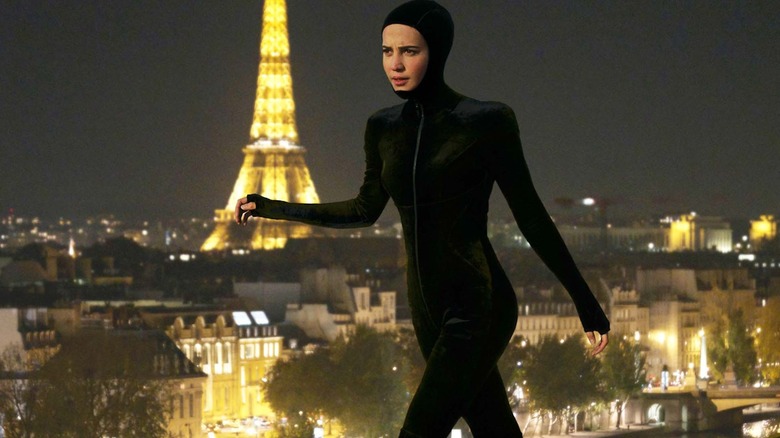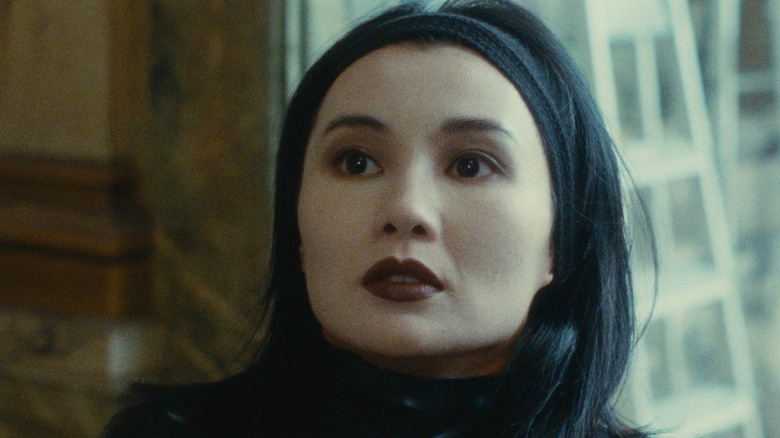Why Olivier Assayas Imagined His Irma Vep Remake As A Series Instead Of A Feature
When Oliver Assayas first directed "Irma Vep" in 1996, it was a very different world for cinema. Since the takeover of streaming services, the director has noticed a shift in financing and the future of film. He knew that if he was going to return to his most popular project, he would need to adapt to the changing media landscape. The result? The HBO miniseries of the same name, which revisits the same core subjects as the original film while giving them a contemporary spin.
In the original film, Maggie Cheung plays herself, a successful Hong Kong actress. She takes a starring role in a film by a struggling French director, famously recognized as Assayas' self-insert character. The film-within-the-film is an adaptation of the silent film trilogy "Les Vampires." The director hopes the film will revive his career but quickly runs into problems as Maggie becomes more and more inseparable from her devious character.
In the HBO series, Alicia Vikander plays an international star that takes a leading role in a streaming adaptation of "Les Vampires." This time, the shooting becomes even more tumultuous, as the emotional series creator is plagued by the memory of his ex-wife, Maggie, whose role is reprised by Cheung.
Assayas and Cheung were actually married after "Irma Vep" was shot in 1996, and later divorced. In this way, the series acts as an auto-fictional sequel to its source material. The style of the "Les Vampires" adaptation was also changed to reflect the shift to streaming services and miniseries, just as "Irma Vep" was adapted from a film to a streaming show.
It would've made no sense
The choice to revisit "Irma Vep" in a miniseries rather than a film was not a solely artistic decision. Assayas recognized that this was the only way his project would be produced. It would have been "impossible" to secure funding for a cinematic re-imagining of "Irma Vep," the director told the Los Angeles Times. "No one would have financed it."
"We are in a moment of very deep transformation of whatever we call cinema," the director stated. The original film already touched on adapting the cinematic past to fit into the media landscape of the present, but the miniseries takes this theme to another level. "It would've made no sense" to make his adaptation into a feature-length film, he explained, because it wouldn't have accurately reflected the way that cinema has changed.
Still, Assayas is concerned about the future of cinema. "There is very little space for 'auteur' filmmaking or independent filmmaking in the way things seem to be evolving right now," he warned. "The money is not there. The distribution formats are not there. So it's a moment of a lot of soul searching in terms of what cinema will be."
As an auteur himself, he uses the HBO series to work out some of his fears about the future of filmmaking. Maybe "Irma Vep" answers some of Assayas' own questions about the direction of cinema — for better or worse.

